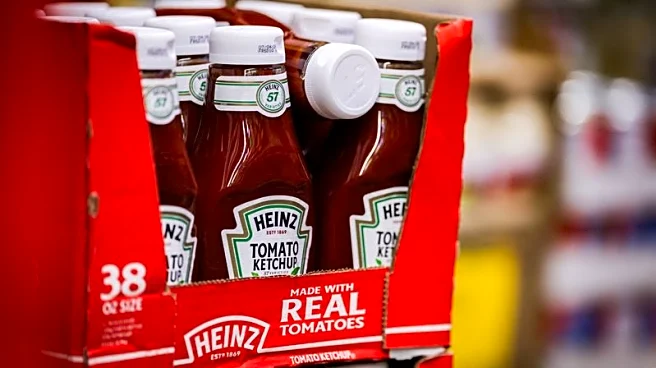What is the story about?
What's Happening?
A federal appeals court ruling in August 2025 declared most Trump-era tariffs illegal, causing significant disruption in the shipping and logistics sector. The court's decision, based on the argument that tariff authority belongs to Congress, not the executive branch, has led companies to reevaluate trade routes and capital allocation. The tariffs remain in effect until mid-October pending a Supreme Court review, but the ruling has already prompted global carriers to prioritize geographic diversification over U.S.-centric trade corridors. Companies like Maersk have reported shifts in import patterns, with North American declines offset by growth in other regions. The Biden administration's continuation of certain tariffs, such as those on Chinese electric vehicles, adds to the fragmented policy landscape.
Why It's Important?
The ruling has significant implications for global trade negotiations and the U.S. economy. If upheld by the Supreme Court, the U.S. could face a $159 billion refund liability for collected tariffs, further destabilizing trade relations. This legal uncertainty is driving strategic shifts in the shipping industry, with companies reallocating capital and adjusting fleet investments to maintain competitiveness. The decision underscores the importance of adaptability in the sector, as carriers navigate complex tariff strategies and compliance requirements. The outcome of the Supreme Court review will be crucial in determining future trade flows and profitability.
What's Next?
The Supreme Court's decision in October will be pivotal in shaping the next phase of trade policy and its impact on the shipping industry. Companies are preparing for potential tariff adjustments by expanding fleets and enhancing supply chain visibility. The reopening of trade routes, such as the Red Sea, could further influence shipping volumes and spot rates. Stakeholders must remain vigilant to regulatory shifts and geopolitical dynamics, as the sector's ability to adapt will dictate its long-term viability.
















